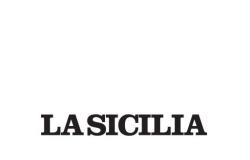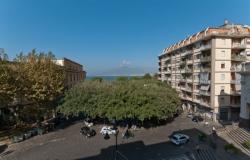The electoral campaign ends amid venom and skirmishes, even between allies, for a European vote which, taking place with proportional representation, has effectively given rise to an “all against all” to try to bring grist to one’s mill. Among the central themes, the risk of abstentionism, with all the leaders, starting from Prime Minister Giorgia Meloni, who have launched appeals for the vote. And then the peace that the leader of the M5S, Giuseppe Conte, wanted to put in the symbol. The conflict within the majority between the two deputy prime ministers, Matteo Salvini and Antonio Tajani, is escalating precisely over Ukraine. The Northern League leader returns to attack the French president, Emmanuel Macron, for the idea of sending European soldiers in the future and the decision, in the meantime, to grant the Mirage fighters. “If someone from the centre-right in Italy prefers the left to the centre-right, and prefers the warmongering bomber, the dangerous Macron, because Macron is dangerous and I see him as unstable, I don’t want my destiny to be in the hands of an unstable guy”, he goes so far as to say Salvini, also attacked for this by the opposition: «A deputy prime minister who says that the president of an allied country is unstable must resign, otherwise it is a problem for diplomacy», says the leader of Action, Carlo Calenda. Tajani doesn’t like Salvini’s words, who underlines that “those who divide the centre-right, those who prefer Macron to Le Pen, are not spiteful to Salvini but are spiteful to Italy”.
«I understand Salvini’s electoral campaign tones, from his point of view it is right to make statements like these» because «he is trying to recover votes», the dry reply from Tajani, who comments: «But I don’t accept lessons from anyone when talking of homeland and of Italy”. The challenge between the two is also for the second position within the centre-right while Prime Minister Meloni, with a leadership that is not in question, invites people to vote because Europe, she says, «sometimes seems distant to us but instead these are issues that closely concern our lives every day.” And she asks to vote for FdI to «bring to Europe the same change that we started here in Italy». «According to all observers, Italy could be the key nation in the next European decisions – says the Prime Minister – and this means having a Europe tomorrow in which there is no longer anyone who thinks they can decide without we. I can do this but I need to be strong.” Even in the centre-left, since the beginning of the electoral campaign, Elly Schlein and Giuseppe Conte have tried to highlight the differences to attract consensus on the lists, but with an eye to the post-election period and the possibility of building a broad field. The two compete remotely even on the last day of the campaign: Schlein from Padua following in the footsteps of Enrico Berlinguer, Count from Palermo. «We want a Europe that is able to build a common policy to build paths to peace», says Schlein, explaining that peace «is a common goal and we can discuss how to get there». For the vote he says he imagines «a victory for the European Socialist Party of which the Democratic Party is part. We would like a coalition with a strong progressive pull that leads Nicolas Schmit to replace Ursula von der Leyen.” Conte, who like the other leaders has launched several appeals to vote, asks “on 8 and 9 June” to remember “how many times Meloni, Salvini and Co. have made fun of you in recent years”. And it presents itself as the only real guarantee of having European parliamentarians committed to peace: «Salvini is now arguing with Tajani, but he has voted for all shipments of weapons so far». Matteo Renzi is focusing on the coherence of his choice to go to Europe if elected, alone among Italian leaders, and symbolically signs a pact with the voters in the Senate; in a video on social media he illustrates the founding points of the United States of Europe program and reiterates: «All the others are running for pretend. I’m really applying. In the event of election, I, Matteo Renzi, choose to represent Italy in Brussels.” Distances and tensions with former ally Carlo Calenda remain. The leader of Action raises an alarm regarding the Capital: thousands of newly adult people have not yet received their electoral card and risk not being able to vote: «The issue of electoral cards never sent – he reports – is definitely taking on serious and surreal contours. The Councilor” for Personnel Policies, Decentralization, Participation and Services to the Territory of Rome, Andrea Catarci, “first responds that they sent them to everyone (and that’s not true) and then that there is no obligation to send them. The reality is that I have had thousands of responses from young people voting for the first time who have not received their cards.” This, according to Calenda, means “not caring about democracy”. The electoral silence will begin at midnight, in view of the polls opening at 3pm on Saturday.





